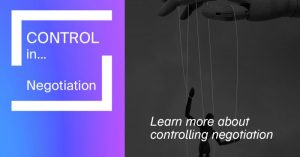Why it’s not easy to listen
Our brains can process thoughts quickly – the equivalent of at least 600 to 800 words a minute. Yet our speech is relatively slow – 100 to 300 words a minute. This gives our brains spare capacity to think of other things while we are listening. It’s easy to become distracted. Or, rather than listening, you are thinking of the next thing you will say. This means you may fail to really hear the point being made by the other or pick up their underlying feelings and needs.
Blockages to listening
Check yourself. Which of the following blocks to good listening apply to you?
- making assumptions, jumping to false conclusions
- interrupting before the other party finishes, not taking the time to listen
- having a closed mind, not really listening if contrary to your own opinion
- wishful hearing, hearing only what you want or expect to hear, ‘halo effect’
- being overly critical, pre-judging the content or dislike the other party’s delivery manner
- personal bias, dislike the other party or their physical characteristics
- low respect for the other party, feelings of superiority
- fear of being influenced, afraid the other party may be right, feelings of inferiority
- being pre-occupied, possibly with a personal problem
- excessive talking: some negotiators feel obliged to talk to justify their participation
- problems of semantics, use of jargon or technical terminology that others don’t understand.
Tips for Good Listening
Real listening is hard work and requires self-discipline. It’s a particular struggle when someone disagrees with you. See if you can practice the following to maintain content awareness:
- Prepare yourself for listening
- Continually ask yourself: “What do they want me to do, think or believe?”
- Mentally repeat to yourself their key words or phrases
- Make contrasts and comparisons, validate the evidence
- Read between the lines: listen with your eyes, watch for speech/body inconsistencies
- Monitor your listening blocks noted above
- Take notes, if appropriate
- Utilize an active listening technique
What is an active listening technique?
This listening technique requires that you psychologically, as well as physically, attend to the other party with your whole being, rather than just passively hearing them. It has the advantages of:
- Buying you time before responding
- Forcing you to process what you have heard
- Demonstrating that you understand what the other has said (but not necessarily agree)
Active listening requires that you:
- Remain neutral – Really hear the other without passing judgement, neither agree nor disagree. Put yourself in their shoes: how does it make sense to them? Separate facts from feelings.
- Show you are listening – Non-verbally show you are listening (smile, head nod, attentive eye contact). Verbally show you are listening (“Mm-hmm”, “I see”, “Really”, “Right”). Encourage them to continue (“Go on …”, “And then …”, “Tell me more …”)
- Confirm your understanding – Use paraphrasing and summarizing techniques (acknowledging not agreeing). Show that you understand both the facts and feelings expressed. Pause… and thank them for helping you understand
As a negotiator, and in life generally, how will you ensure you are really listening? That means YOU!
PODCAST
For your further interest, a recent excellent podcast regarding Good Listening is available HERE.
To discuss this article in more depth and explore developing your negotiation capabilities, please contact us on the form below.










